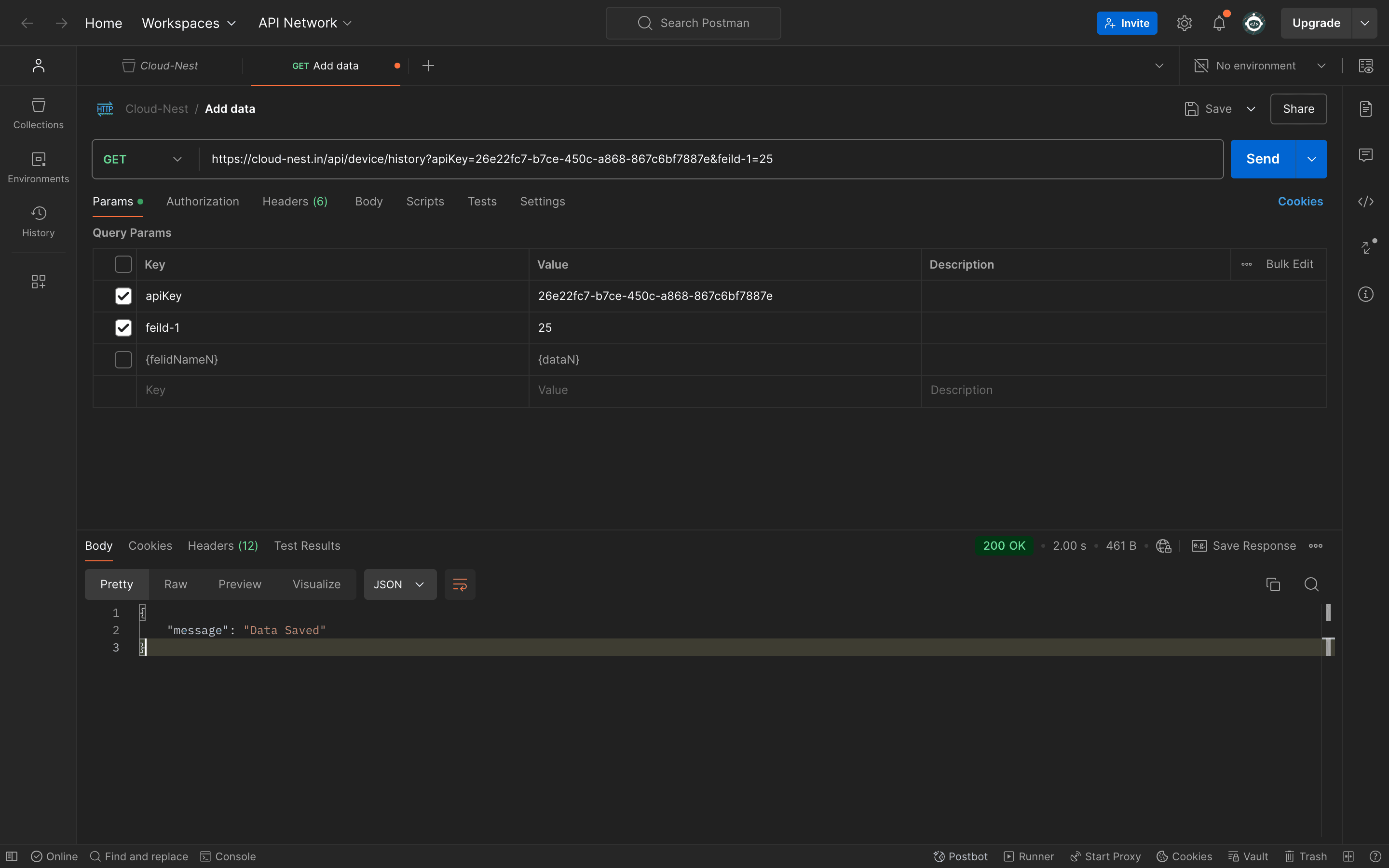Sending Sensor Data to Cloud-Nest: A Step-by-Step Guide

Welcome to Cloud-Nest, where you can easily and securely manage and visualize your IoT sensor data. In this article, we'll show you how to send sensor data to Cloud-Nest using our REST API. We'll use a GET request to accomplish this, ensuring that your data is transferred efficiently and securely.
Understanding the API Structure
To send sensor data to Cloud-Nest, you'll be interacting with our API using the following
Base URL: https://cloud-nest.in/api
The specific endpoint for sending sensor data is: /device/history
Securing Your Data with API Keys
To prevent unauthorized access to your data, Cloud-Nest requires the use of API keys. Here's how you can manage your API keys:
Accessing Your API Key: Log in to your Cloud-Nest dashboard and navigate to the "Config" tab. Here, you can view your current API key.
Regenerating Your API Key: If you suspect your API key has been compromised, you can regenerate a new one. This will automatically deactivate the old key, ensuring your data remains secure.
Configuring Your Devices
In the "Config" tab, you can also manage your devices:
View Device Details: See the names and field names of your added devices.
Delete Devices: Remove any devices you no longer need.
Sending Sensor Data
To send sensor data, you'll need to include it in the query parameters of your GET request. Each piece of data is sent as a key-value pair, where the key is the field name and the value is the sensor data.
Here's an example of how to structure your GET request:
Curl --location ‘https://cloud-nest.in/api/device/history?apiKey=1d3f303a-ecd1-4f5b-ad31-470ec345b067&Feild-1=25’
Sending Multiple Data Points
You can send multiple sensor data points in a single request by adding more key-value pairs to the query parameters. For example:
curl --location --globoff https://cloud-nest.in/api/device/history?apiKey=1d3f303a-ecd1-4f5b-ad31-470ec345b067&Feild-1=25&{felidNameN}={dataN}'
Conclusion
By following this guide, you can easily send your sensor data to Cloud-Nest using our secure REST API. With the ability to manage your API keys and device configurations directly from the dashboard, Cloud-Nest ensures that your data is both accessible and protected. Start sending your data today and unlock the full potential of your IoT devices!
For more information and to get started, visit Cloud-Nest (https://cloud-nest.in).